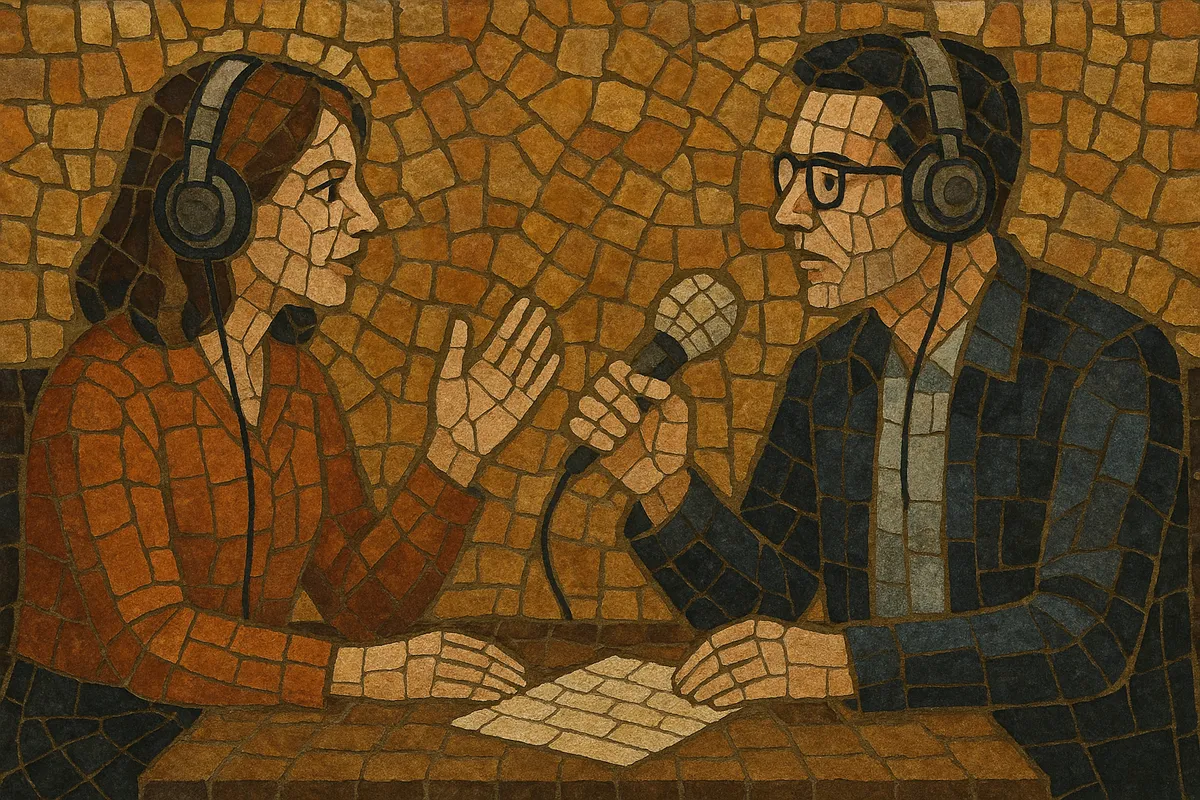
Interview is a spoken-word recording genre that documents a conversation—typically between a host and a guest—focused on biography, creative process, cultural context, or timely topics.
Although not musical in the strict sense, interview releases are integral to the music ecosystem: labels and media have long issued press-only promos, radio transcription discs, fan-club LPs, and CD box-set extras featuring interviews with artists. These recordings foreground voice, narrative, and authenticity, often serving as historical primary sources that frame an artist’s work and era.
With commercial radio emerging in the 1920s in the United States, the broadcast interview became a staple of spoken programming. Early recorded interviews were captured to lacquer and transcription discs for syndication, archiving, or rebroadcast, establishing the template of host-led Q&A and artist commentary.
As popular music boomed, stations and labels distributed interview transcription discs and press-only promos. These included artist introductions, tour updates, and track-by-track commentaries intended for DJs to interleave with records. Fan-club LPs and spoken-word releases archived press conferences and backstage conversations, turning interviews into collectible artifacts.
CD and cassette formats made interviews even more portable—appearing as bonus discs, EPKs (electronic press kits), and label samplers. Specialty imprints and magazines released standalone interview CDs with major artists, while broadcasters compiled notable long-form conversations for retail.
Online audio and podcasting revitalized the long-form artist interview, allowing deep, unedited conversations to reach global audiences. Labels continue to package archival interviews in deluxe editions, and broadcast interviews are routinely digitized for streaming, preserving historically significant dialogues.
Interview releases contextualize albums, reveal creative methods, and capture the cultural climate around scenes and movements. For researchers and fans, they function as primary-source documents that deepen understanding of an artist’s body of work.

